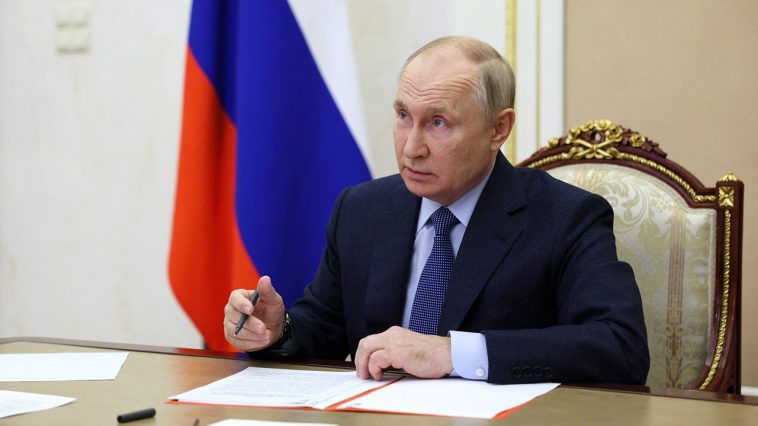This past Thursday, a significant development transpired as Vladimir Putin, the President of Russia, put his endorsement on fresh legislation. This law effectively ended Russia’s participation in a significant transnational arms control contract.
The treaty in question is the Comprehensive Nuclear Test Ban Treaty (CTBT), which holds historical importance as a milestone agreement inked back in 1996 and subsequently ratified in 2000.
Russian government representatives have explained this step as a drive toward achieving parity with the countries of the West. It should be noted that along with Russia, the United States too was one of the signatories of the Treaty. However, the US had not been able to fully ratify the Treaty and implement its mandates fully.
Other nations, too, did not formalize their commitment to the CTBT. Among the countries that remained laggard are China, Israel, Iran, and the notoriously unpredictable North Korea. However, it remains imperative to maintain a dialogue with all these nations to ensure global safety and security.
The process of Russia detaching itself from the CTBT was completed in stages. The lower and upper legislative bodies of Russia, forming the bicameral Federal Assembly, both gave their stamp of approval to the withdrawal of Russia from the CTBT earlier in the year, with the legislation being cleared during October.
In an impressive demonstration of might and readiness, Putin led a mock military drill in the recent past. The exercise served as a simulation of a nuclear retaliatory strike likely aimed at testing Russia’s preparedness for managing a crisis escalating from a nuclear assault.
This exercise was elevated in stature due to the engagement of multiple forms of military ammunition. Under Putin’s watch, ballistic and cruise missiles were conducted through a series of launch exercises. The significance of these exercises in the current geopolitical environment cannot be understated.
While the above developments might seem concerning to some, Deputy Foreign Minister Sergei Ryabkov expressed his reassurance last month. He stated that despite the severing of the treaty ties, Moscow will continue to uphold the spirit of the ban initially inked in the treaty.
Sergei Ryabkov also presented a caveat to this assurance. He clarified Moscow’s stance vis-à-vis nuclear tests, stating that Russia will only reinstate nuclear testing if the USA chooses to do so first. This statement projects a stance of measured retaliation, indicating that Moscow will adhere to the principle of ‘action-reaction’ in this matter.
The Kremlin’s latest approach to nuclear testing was also guided by certain activities in the United States. At the onset of November, it was noted that the US conducted nuclear tests involving chemicals and radioisotopes. While overtly benign, these tests are significant in the broader context of global nuclear politics.
The United States’ tests were aimed at validating the fresh predictive explosion models. The new models employed chemicals and radioisotopes to enhance the accuracy of detecting nuclear explosions occurring in other countries. The implications of these advanced models could drastically reshape the landscape of international nuclear monitoring.
The CTBT’s initial embodiment aimed at curbing the proliferation of nuclear weapons and ensuring a safer world. This extended global phase-out was envisioned to encourage disarmament gradually and foster a world free from the threats of nuclear weapons.
Russia’s departure from the CTBT is undoubtedly a significant change in the current paradigm. It signifies a shift in Russia’s nuclear policy and potentially a modification in international geopolitics.
Following the departure from the CTBT, it will be interesting to see the subsequent diplomatic maneuvers. Each nation is likely to reassess its strategy regarding nuclear weapons and their testing.
In light of these developments, a new global conversation must be initiated towards reassessing arms control agreements. The importance of dialogue, negotiation, and mutual deterrence in maintaining international peace and security becomes ever-more pivotal with the unfolding nuclear narrative.



